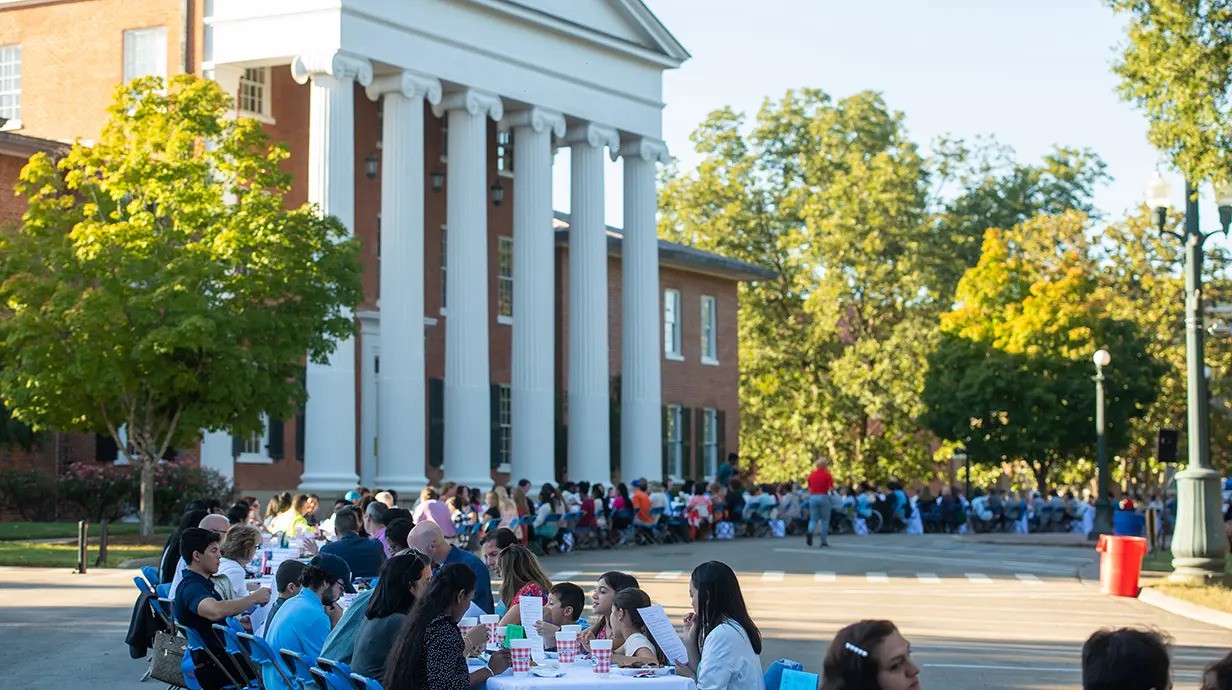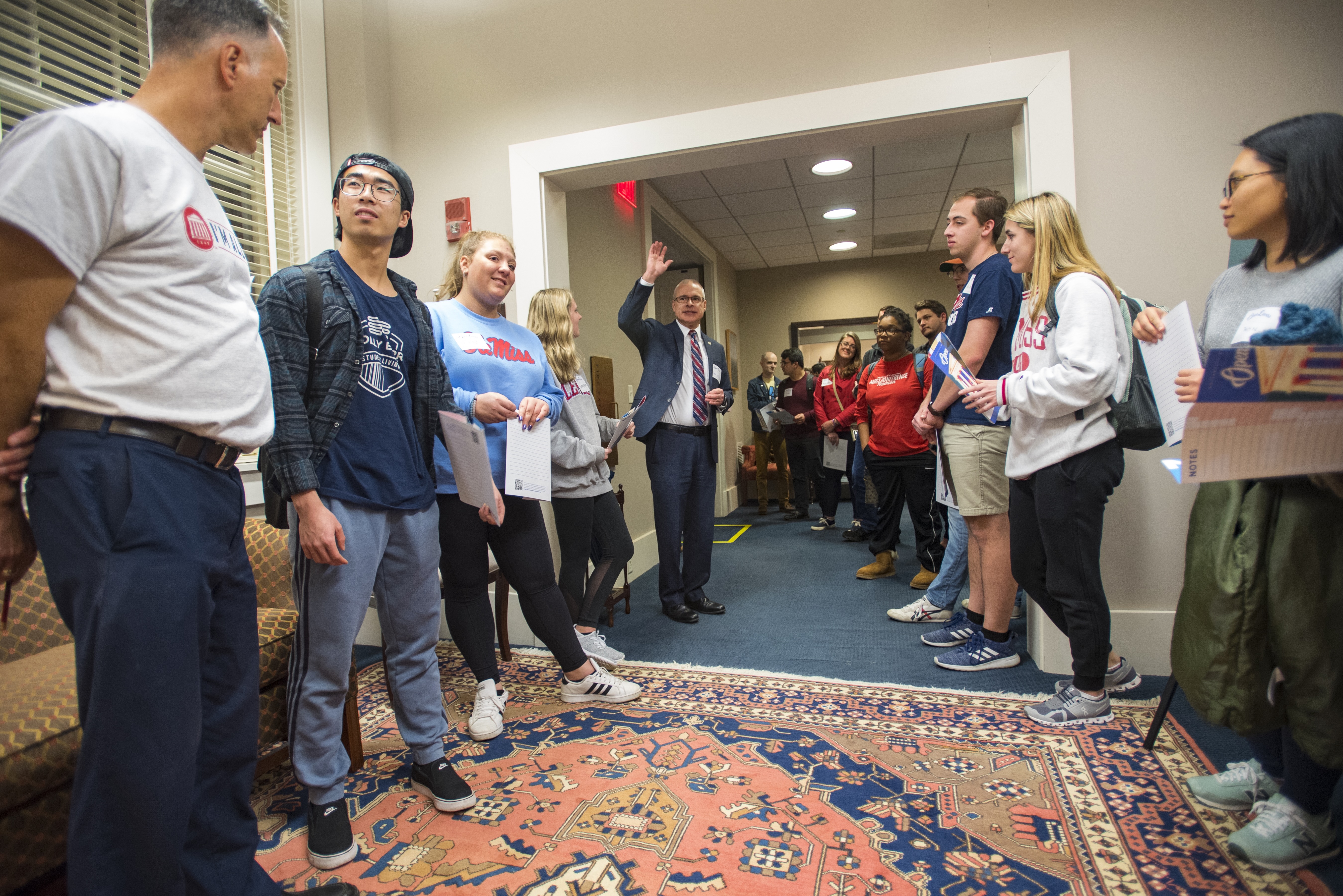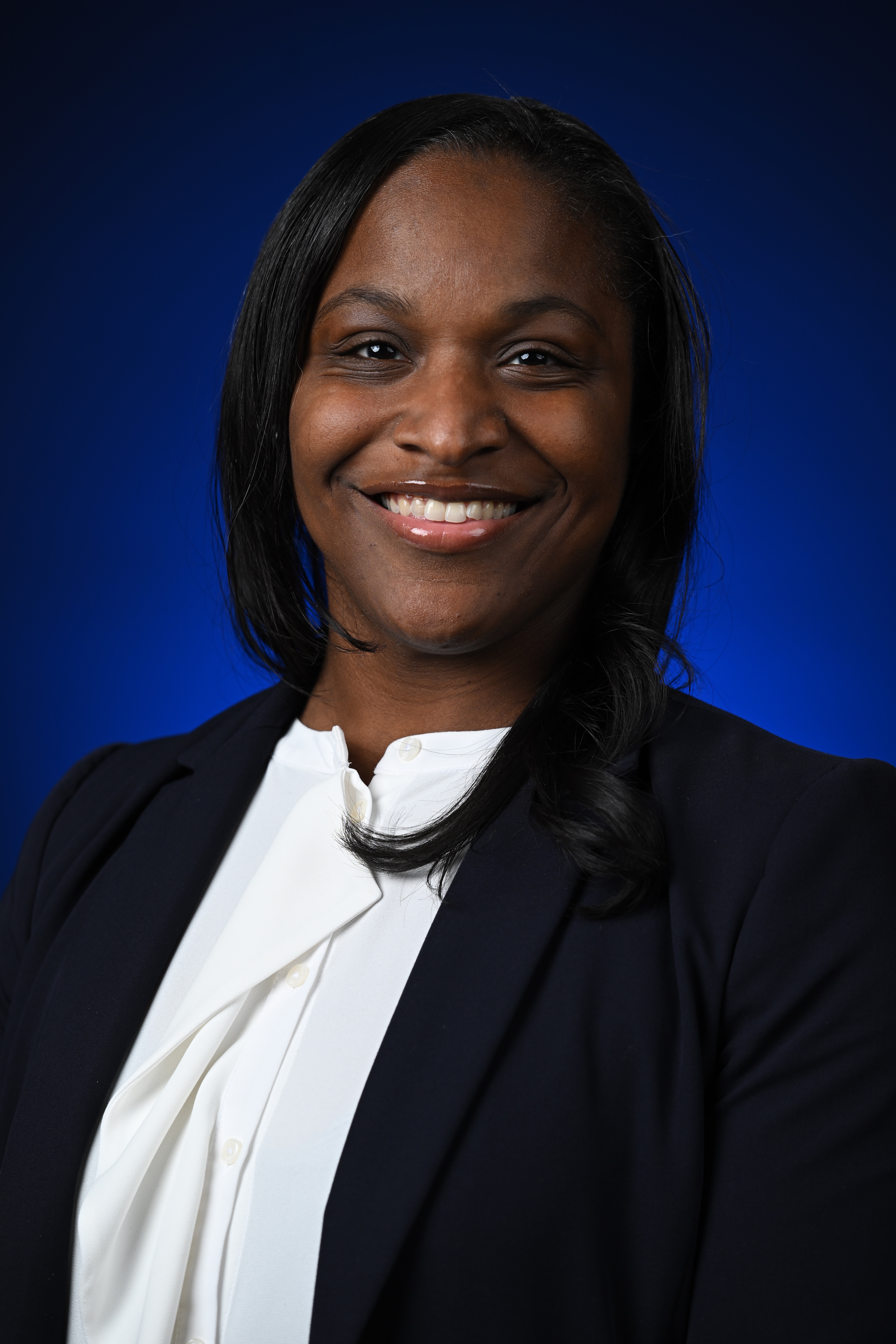Q&A With Shawnboda Mead
Vice chancellor shares how teamwork helps foster student success, build engaged campus community

Vice Chancellor Shawnboda Mead leads the Division of Access, Opportunity and Community Engagement, which focuses on creating pathways for student success while strengthening the university’s connections with the broader community.
In this Q&A, she highlights key programs and explains how the DAOCE team works alongside faculty and staff to support the university’s mission.
From student-driven initiatives such as the Hotty Toddy Tech Pass to community partnerships that enhance learning, Mead shares how collaboration strengthens both campus and community connections.

What do access, opportunity and community engagement mean to you, and why are they critical to our university’s mission?
For me, these three concepts are the foundation of a welcoming and thriving campus. Access means creating pathways for growth, leadership and success, both inside and outside the classroom. Opportunity means ensuring that all members of our community – students, faculty and staff – have the support and resources they need to achieve their goals. Community engagement means connecting the university with the broader world, building partnerships that enhance learning, strengthen our communities and advance research.
These pillars are essential to our mission because they ensure that all members of our community feel valued and are empowered to make a positive impact in their work, studies and beyond.
What would you like faculty and staff to know about your division?
I’d like faculty and staff to know that our division is a willing partner in fostering student success and building a vibrant, engaged campus community. We’re here to help ensure all students have access to the resources and support they need to thrive. From offering training and support for digital accessibility in classrooms to providing resources that help faculty design accessible learning experiences, we’re committed to making our learning environments welcoming and supportive for every student.
Our division also supports faculty and staff through learning and development opportunities, guidance on engaging first-generation students and assistance in connecting with community organizations. We collaborate on events and initiatives that encourage opportunity, dialogue and a sense of community throughout the university.
In addition, we are proud to support community-engaged scholarship and research that strengthen partnerships and enhance the impact of the university’s work beyond our campus. We are also excited about our new Magnolia Federal Work-Study Program, which helps connect work-study eligible students with meaningful on-campus employment experiences while offering faculty and staff opportunities to mentor and support these students in their development.
Whether it’s building community partnerships, developing student-centered programming, supporting innovative teaching and research, or ensuring students have the accommodations they need to succeed, our team is dedicated to working alongside you to create a campus where everyone can thrive.
Would you share one initiative you’re most proud of and its impact?

I can’t just pick one! I’m especially proud of how many of our efforts grow directly out of ideas that students bring to us.
Programs such as the Hotty Toddy Tech Pass laptop loan program, Open Doors and the Longest Table were all sparked by student voices and needs. For example, HTTP ensures students have the technology they need to be successful, while Open Doors and Longest Table create spaces for connection and conversation across our community.
I’m also inspired by initiatives like the MOST Conference, which supports Mississippi’s prospective students as they prepare to transition to college, and the Bonner Leaders program, which empowers students to lead community engagement projects that have a meaningful impact.
These programs remind me every day that when we listen to students and support their ideas, we create solutions that truly make a difference. We’re also working to ensure that student parents have access to programs and services that help them balance their academic and family responsibilities, which is critical to supporting their success.
What is something inspiring you’ve learned from a community partner or student lately?
I recently attended the presentations of students enrolled in the community engaged leadership minor, and it was truly inspiring to hear about the incredible work they are doing.
The CEL minor equips students with the skills to analyze and understand significant problems facing our communities, challenging them to explore their relationship with these problems and imagine possible solutions. As part of their academic work, students complete meaningful, hands-on projects co-designed with an off-campus partner.
Listening to their presentations, I was amazed at the depth of learning, the ethical and collaborative approach they took in working with community partners, and the creativity they brought to making their communities better. Their big ideas – and their commitment to doing the work in partnership – reminded me how powerful community-engaged learning can be in transforming both our students and the communities they serve.
How can faculty and staff help with the division’s mission?
Faculty and staff play a crucial role in advancing our mission because student success is the responsibility of all of us. Every interaction, from a classroom conversation to a hallway chat, has the potential to shape a student’s experience.
By being intentional about creating welcoming environments, mentoring students from all backgrounds and connecting them with resources, faculty and staff can make a lasting impact. Together, we can build a community where all students have the opportunity to succeed, persist through challenges and reach graduation, fully prepared to contribute meaningfully to their communities and beyond.
Top: Hosted along the Circle outside the Lyceum, the Longest Table connects students, staff, faculty and community members for an evening of food and conversation. The Division of Access, Opportunity and Community Engagement helps support this annual event. Photo by Kevin Bain/Ole Miss Digital Imaging Services
